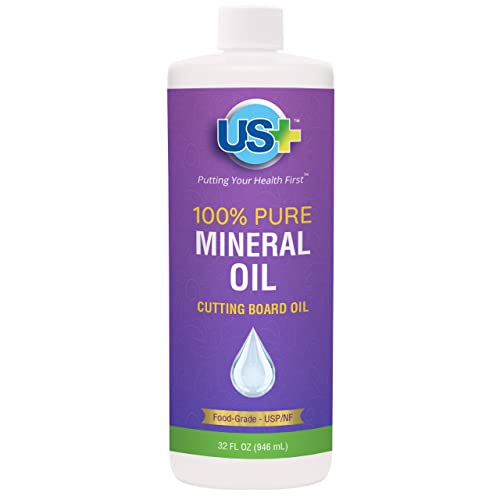When it comes to wind chimes, rust is a common issue that can ruin their appearance and sound quality. To prevent rusting, many people turn to wax or oil coatings. But which one is the best option?
Wax and oil are both effective at preventing rust on wind chimes, but they have different properties and application methods.
Wax creates a protective barrier on the surface of the metal, while oil penetrates the metal to provide long-lasting protection. Additionally, wax is easier to apply and remove, while oil requires more time and effort to apply and may leave residue.

Ultimately, the choice between wax and oil depends on personal preference and the specific needs of your wind chimes. In the following article, we will explore the pros and cons of each option and provide tips for applying them effectively. With this information, you can choose the best product to keep your wind chimes rust-free and looking beautiful for years to come.
Table of Contents
Understanding Rust and Wind Chimes
Wind chimes can add a beautiful and calming element to any outdoor space, but they are susceptible to rust over time if not properly maintained.
Rust is a common problem for metal objects that are exposed to moisture and air, and wind chimes are no exception.
Rust is the result of a chemical reaction between iron, oxygen, and water. When these elements come into contact with each other, they create iron oxide, which is the reddish-brown substance we commonly refer to as rust. If left unchecked, rust can weaken the metal and eventually cause it to break or crumble.
Wind chimes are particularly vulnerable to rusting because they are often exposed to rain, dew, and other forms of moisture. Additionally, the constant movement of the chimes can wear away any protective coatings or finishes that may have been applied to the metal.
To prevent rust from forming on wind chimes, it is important to take steps to protect the metal. This can be done by applying a wax or oil coating to the surface of the chimes.
5 Wax or Oils To Prevent Rusting
There are a variety of waxes and oils that can be used to prevent rust on wind chimes. Some popular options include:
Each of these options has its own advantages and disadvantages, so it is important to choose the one that best suits your needs and preferences. Some waxes and oils may be easier to apply than others, while some may provide longer-lasting protection against rust.
Types of Wax and Oil for Rust Prevention
Beeswax
Beeswax is a natural wax that is commonly used for rust prevention. It is a good choice for wind chimes because it is non-toxic and easy to apply.
Beeswax creates a protective barrier on the surface of the metal, preventing moisture from reaching it and causing rust. It is also resistant to heat and can withstand extreme temperatures.
Prices pulled from the Amazon Product Advertising API on:
Product prices and availability are accurate as of the date/time indicated and are subject to change. Any price and availability information displayed on [relevant Amazon Site(s), as applicable] at the time of purchase will apply to the purchase of this product.
Mineral Oil
Mineral oil is a petroleum-based oil that is often used to prevent rust on metal surfaces. It is an inexpensive option that is readily available at hardware stores.
Mineral oil works by forming a thin layer on the surface of the metal, which prevents moisture from contacting the metal and causing rust. It is also odorless and colorless, making it a good choice for wind chimes that are meant to look and smell natural.
Prices pulled from the Amazon Product Advertising API on:
Product prices and availability are accurate as of the date/time indicated and are subject to change. Any price and availability information displayed on [relevant Amazon Site(s), as applicable] at the time of purchase will apply to the purchase of this product.
Tung Oil
Tung oil is a natural oil that is derived from the seeds of the tung tree. It is commonly used in woodworking and metalworking to prevent rust and corrosion.
Tung oil works by penetrating the surface of the metal and forming a protective layer that prevents moisture from reaching the metal. It is also resistant to heat and can withstand extreme temperatures.
Prices pulled from the Amazon Product Advertising API on:
Product prices and availability are accurate as of the date/time indicated and are subject to change. Any price and availability information displayed on [relevant Amazon Site(s), as applicable] at the time of purchase will apply to the purchase of this product.
Boiled Linseed Oil
Boiled linseed oil is a natural oil that has been heated to make it dry faster. It is commonly used in woodworking and metalworking to prevent rust and corrosion.
Boiled linseed oil works by penetrating the surface of the metal and forming a protective layer that prevents moisture from reaching the metal. It is also resistant to heat and can withstand extreme temperatures.
Prices pulled from the Amazon Product Advertising API on:
Product prices and availability are accurate as of the date/time indicated and are subject to change. Any price and availability information displayed on [relevant Amazon Site(s), as applicable] at the time of purchase will apply to the purchase of this product.
Danish Oil
Danish oil is a blend of natural oils and varnish that is commonly used in woodworking and metalworking to prevent rust and corrosion.
Danish oil works by penetrating the surface of the metal and forming a protective layer that prevents moisture from reaching the metal. It is also resistant to heat and can withstand extreme temperatures.
Prices pulled from the Amazon Product Advertising API on:
Product prices and availability are accurate as of the date/time indicated and are subject to change. Any price and availability information displayed on [relevant Amazon Site(s), as applicable] at the time of purchase will apply to the purchase of this product.
Clear Coat Spray
Clear coat spray is a synthetic spray that is commonly used to prevent rust on metal surfaces. It works by forming a protective layer on the surface of the metal, preventing moisture from contacting the metal and causing rust.
Clear coat spray is easy to apply and dries quickly, making it a good choice for wind chimes that are meant to be used outdoors.
Prices pulled from the Amazon Product Advertising API on:
Product prices and availability are accurate as of the date/time indicated and are subject to change. Any price and availability information displayed on [relevant Amazon Site(s), as applicable] at the time of purchase will apply to the purchase of this product.
Application Methods
Brushing
Brushing is a popular method for applying wax or oil to wind chimes. It involves using a brush to apply a thin layer of wax or oil to the surface of the wind chime. This method is best suited for smaller wind chimes that have intricate designs and hard-to-reach areas. To brush on wax or oil, follow these steps:
- Clean the wind chime thoroughly before applying wax or oil.
- Dip the brush into the wax or oil and remove any excess.
- Apply the wax or oil to the wind chime in a thin, even layer.
- Allow the wax or oil to dry completely before using the wind chime.
Dipping
Dipping is another method for applying wax or oil to wind chimes. It involves submerging the wind chime in a container of wax or oil. This method is best suited for larger wind chimes that have a simple design and can be easily submerged. To dip a wind chime in wax or oil, follow these steps:
- Clean the wind chime thoroughly before dipping it in wax or oil.
- Heat the wax or oil in a container to a temperature that will allow it to coat the wind chime evenly.
- Submerge the wind chime in the container of wax or oil and let it soak for a few minutes.
- Remove the wind chime from the container and allow it to dry completely before using it.
Spraying
Spraying is a quick and easy method for applying wax or oil to wind chimes. It involves using a spray bottle to apply a fine mist of wax or oil to the surface of the wind chime. This method is best suited for wind chimes that have a smooth surface and do not have intricate designs. To spray wax or oil on a wind chime, follow these steps:
- Clean the wind chime thoroughly before spraying it with wax or oil.
- Fill a spray bottle with wax or oil and adjust the nozzle to create a fine mist.
- Spray the wax or oil onto the wind chime, making sure to cover the entire surface.
- Allow the wax or oil to dry completely before using the wind chime.
Additional Tips and Considerations
When it comes to preventing rust on wind chimes, there are a few additional tips and considerations to keep in mind.
First, it’s important to note that while wax or oil can be effective in preventing rust, they may not be enough to completely stop the process. It’s still important to regularly inspect your wind chimes and address any signs of rust or corrosion as soon as possible.
Another consideration is the type of metal your wind chimes are made of. Some metals, such as copper and brass, naturally develop a patina over time, which can actually help protect against rust. In these cases, you may not need to apply any additional coatings.
However, if your wind chimes are made of steel or iron, a protective coating is essential. In addition to wax or oil, you may also want to consider using a rust inhibitor or a clear coat spray to provide extra protection.
It’s also important to consider the environment in which your wind chimes are located. If they are exposed to saltwater or other corrosive elements, you may need to apply protective coatings more frequently.
Finally, it’s worth noting that regular maintenance is key to keeping your wind chimes in good condition. This includes cleaning them regularly and inspecting for any signs of damage or wear and tear.
Conclusion
When it comes to preventing rusting on wind chimes, both wax and oil can be effective solutions. However, it ultimately comes down to personal preference and the specific needs of your wind chimes.
If you prefer a natural solution, beeswax or carnauba wax can provide a protective coating that is gentle on the metal and easy to apply. On the other hand, if you want a more heavy-duty option, mineral oil or silicone spray can offer a longer-lasting barrier against moisture and rust.
Regardless of which option you choose, it’s important to regularly clean and maintain your wind chimes to ensure they continue to produce beautiful melodies for years to come. With proper care, your wind chimes can be a cherished addition to your outdoor space for many seasons.
- How to Build a Planter Box for Bamboo: A Step-by-Step Guide

- Can Robotic Lawnmowers Handle Steep Slopes?

- Do You Need a Specific Lawn for a Robotic Lawnmower? Expert Advice

- Are Robotic Lawnmowers Safe for Pets and Children? Safety Features of Robotic Lawnmowers

- Why Use Robotic Lawnmowers? Advantages of Using a Robotic Lawnmower

- Is the GARDENA SILENO City 300 Cordless or Corded? A Clear Answer





















